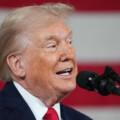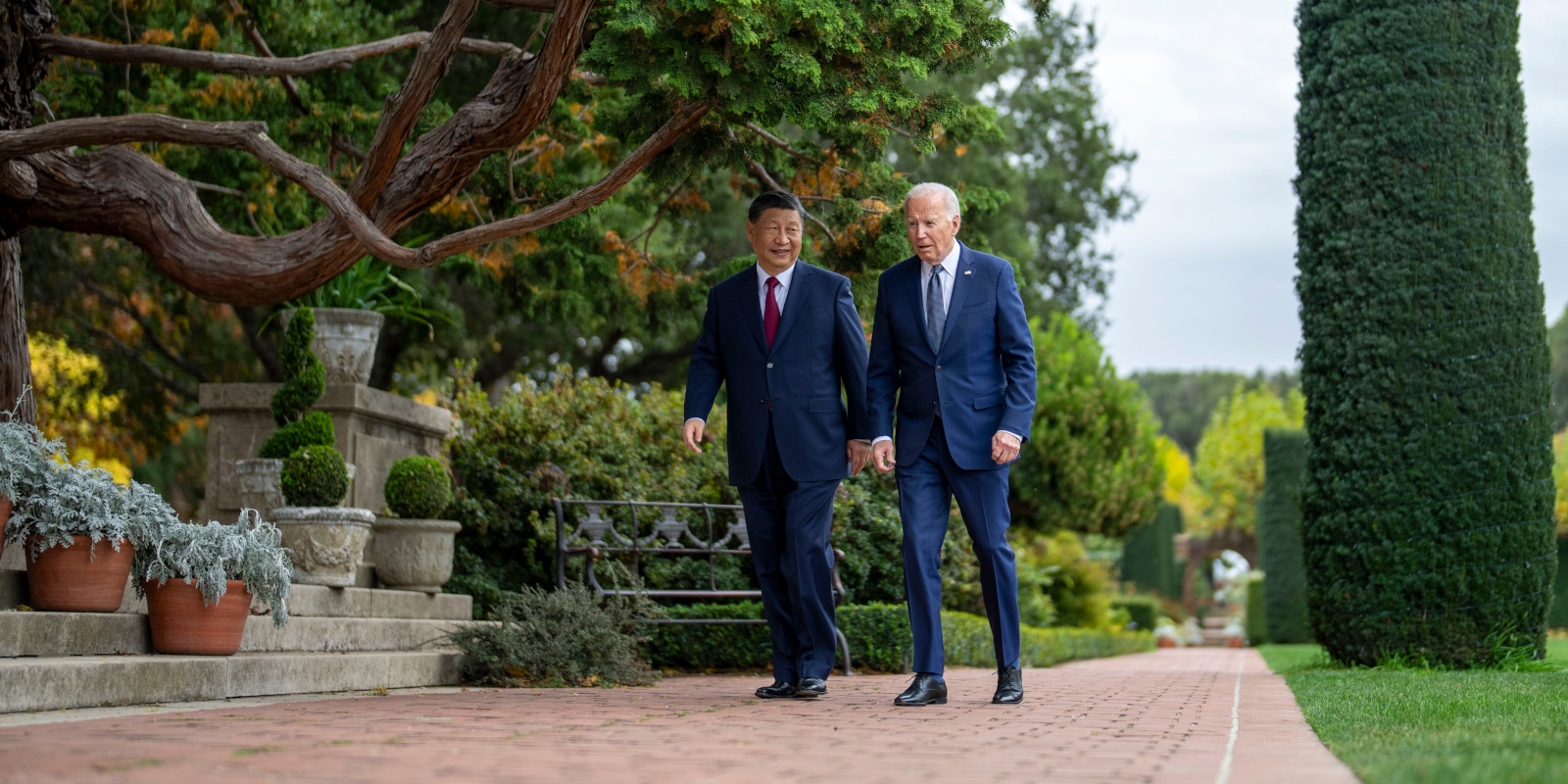While last week’s Asia-Pacific Economic Cooperation (APEC) meeting in San Francisco was ostensibly focused on economic relations and growth in the Pacific, all eyes were on the meeting between the leaders of the world’s two largest economies: Chinese president and Communist Party chairman Xi Jinping and U.S. President Joe Biden.
According to experts, Xi may have gone into the meeting seeking to repair relations with the United States, which have been strained in recent years, to China’s detriment.
David Mulroney, a distinguished fellow at the Munk School and former Canadian ambassador to China, notes that Xi has been sobered by U.S.-led initiatives to redirect trade to allies and otherwise friendlier partners—a shift that came in response to Xi steering China toward a more nationalistic and assertive stance, which led to many diplomatic spats and incidents with U.S. allies, including Canada and Australia.
“Xi needs to repair, to the extent possible, a widening breach in the U.S.-China relationship for which many on both sides of the Pacific hold Xi responsible,” says Mulroney. “He will almost certainly want to do this without completely disowning the nationalistic swagger that characterizes his leadership style.”
The U.S. push to redirect, or “friendshore,” its international trade has resulted in improved trade relations with countries such as Vietnam and Mexico, with the latter eclipsing China as the top U.S. trading partner in 2023. The United States has also attempted to move closer to India, which borders China, is the world’s most populous nation, and is considered to be a future superpower.
“The problem [Xi] faces is that after resolving to become less reliant on China, and finding that this is indeed possible, the U.S. and its allies are unlikely to return to the status quo ante,” says Mulroney. “What’s even worse for Xi is that those same countries have now also been immunized from believing in China’s ability to defy economic gravity forever.”
Charles Burton, a senior fellow at the Macdonald-Laurier Institute, has been monitoring China’s state-controlled media. He’s noticed a changed in tone to emphasize stable and productive relations with the United States—a departure from the more hawkish tone that had been used in tandem with China’s recent aggressive foreign policy stance, known as “wolf warrior diplomacy,” which Burton believes was an effort to paper over domestic concerns.
Burton says there are indications that China wants to reverse this trend due to growing economic difficulties within China. “The Chinese real estate sector is in serious trouble, and there’s also high levels of youth unemployment and concern that these could lead to instability in China,” he says.
China’s real estate market, which accounts for a quarter of the economy, is in the midst of a major crisis. Nikkei reported that sales have fallen 11 percent by volume since last year, with two of China’s largest developers defaulting on their loans. As a result, banks and other lenders who helped finance many now-stalled projects may be forced into a credit crunch.
China’s overall economy has also slowed significantly after decades of rapid growth. Analysts have singled out factors such as worsening international relations and disruptive COVID-19 lockdowns. They also point to a more cautious private sector after Xi’s drive for “common prosperity,” which involves greater state redistribution of wealth to grow the Chinese middle class.
“I think that he’s hoping to stem the outflow of capital from China and encourage a revival of U.S. investment in China,” says Burton.
In August, global asset managers rapidly sold off Chinese onshore stocks, leading to a $900 billion loss in market value driven by concerns over poor growth prospects, weak stimulus, and ongoing geopolitical tensions between the U.S. and China.
Burton notes that the 1989 Tiananmen Square protests—which were led by pro-democracy and pro-reform activists and crushed by the Chinese military—gave birth to the “Tiananmen Square Bargain.” According to Burton, the bargain entailed the Chinese people accepting non-democratic rule in exchange for improved standards of living.
“In terms of the economic downturn, one could associate it with Mr. Xi’s increasingly Leninist policies of suppressing the role of successful entrepreneurs in China and causing a crisis of confidence in the business community inside China,” he says.
Since becoming general secretary of the Chinese Communist Party in 2012, Xi has centralized power around himself. This means, says Burton, that he will take the blame for any economic downturns.
“I do think that this puts him in a position where he feels a sense of urgency to try and stave off the discontent with the economic downturn,” he says. “If it is as serious as some economists believe it is, his hold on power could be threatened.”

While Burton believes it is too early to tell if the APEC summit signals any fundamental changes in the U.S.-China relationship, Mulroney says it could be a sign that China is not on the road to global pre-eminence.
“APEC in San Francisco may simply be the first step in a long and humbling climb down to reality, certainly to a status well short of global prominence, for Xi Jinping and for China,” says Mulroney.
As for repairing relations, that may not be so easily achieved. During the APEC summit, Biden did not shy away from publicly referring to Xi as a dictator.
“He’s a dictator in the sense that he’s a guy who runs a country that is a Communist country that’s based on a form of government totally different than ours,” the U.S. president said at a press conference.
While China’s foreign ministry did not mention Biden by name, a spokesperson stated that the remarks were “extremely wrong” and “irresponsible political manipulation.”
Recommended for You

How the resource royalty rollercoaster continues to shape Alberta’s budgets

‘Extreme’: David Frum reacts to Trump’s State of the Union and fraught Canada-U.S. relations

Canada’s global performance rankings are in freefall

‘The big question is what comes next’: Oren Cass on Trump and the ideological realignment reshaping America




